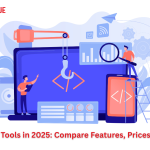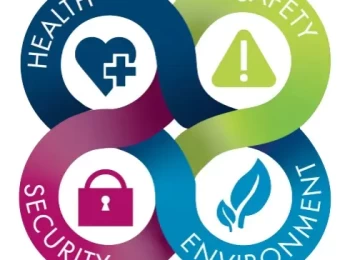In today’s fast-paced IT environments, organisations need more than traditional service management frameworks — they require flexibility, speed, and intelligent automation. This course provides a comprehensive, hands-on mastery of ITIL v4 principles combined with modern low-code automation tools that enable rapid process design and optimisation.
Participants will learn how to implement ITIL v4 best practices while leveraging low-code platforms to automate workflows, reduce manual errors, and enhance service delivery. The course equips IT professionals to lead scalable, agile, and automated ITSM processes aligned with business objectives.
By the end of this course, participants will be able to:
- Understand and apply ITIL v4 service management principles.
- Design and optimise ITSM processes using low-code automation tools.
- Build automated workflows for incident, problem, change, and request management.
- Integrate ITIL practices with digital transformation and agile service models.
- Ensure continuous improvement through automated reporting and feedback loops.
- Align ITSM automation strategies with organisational goals and compliance standards.
This course is ideal for:
- IT Service Managers and Team Leaders.
- ITSM Process Designers.
- Digital Transformation Managers.
- ITIL v3 certified professionals seeking ITIL v4 upgrade.
- Low-Code Platform Administrators.
- ITSM Consultants and Auditors.
- IT Operations and Infrastructure Professionals.
The course uses a highly practical, interactive approach combining theoretical instruction with hands-on labs. Participants will engage in real-world simulations, tool demonstrations, group exercises, and guided low-code workflow design sessions. They will apply both ITIL v4 principles and low-code development to solve ITSM challenges and automate critical processes.
Day 5 of each course is reserved for a Q&A session, which may occur off-site. For 10-day courses, this also applies to day 10
Section 1: Foundations of ITIL v4
- Core concepts and guiding principles of ITIL v4.
- Service value system and value streams.
- ITIL v4 practices vs. traditional processes.
- Aligning ITIL v4 with business strategy.
Section 2: The Evolution of ITSM Automation
- Why ITSM needs automation in 2025.
- Low-code vs. traditional development approaches.
- Benefits of low-code platforms in ITSM environments.
- Overview of leading low-code ITSM tools.
Section 3: Incident and Request Management Automation
- Designing automated ticket routing and resolution.
- Self-service portals and virtual agents.
- Workflow automation for common service requests.
- Reducing response time and improving customer experience.
Section 4: Change and Problem Management Automation
- Automated change approval processes.
- Risk assessment through integrated dependency mapping.
- Preventive problem management using predictive analytics.
- Low-code workflows for controlled change deployments.
Section 5: Integrating ITIL v4 with Agile and DevOps
- Bridging ITIL and Agile principles.
- Continuous delivery pipelines and automated service validation.
- Low-code solutions for supporting DevOps environments.
- Enhancing collaboration between IT operations and development teams.
Section 6: Automation Governance, Compliance, and Security
- Ensuring governance in automated ITSM environments.
- Security considerations in low-code platforms.
- Data privacy and compliance standards (GDPR, ISO 27001).
- Risk management for AI-powered automation in ITSM.
Section 7: Reporting, Analytics, and Continuous Improvement
- Building automated KPI dashboards.
- Monitoring service performance in real-time.
- Using analytics for service improvement cycles.
- Aligning metrics with business outcomes.
Section 8: Practical Workshops and Case Studies
- Real-world low-code automation projects.
- Group exercises: Designing automated ITIL v4 workflows.
- Case studies of successful ITSM automation implementations.
- Lessons learned and key success factors.
Upon successful completion of this training course, delegates will be awarded a Holistique Training Certificate of Completion. For those who attend and complete the online training course, a Holistique Training e-Certificate will be provided.
Holistique Training Certificates are accredited by the British Accreditation Council (BAC) and The CPD Certification Service (CPD), and are certified under ISO 9001, ISO 21001, and ISO 29993 standards.
CPD credits for this course are granted by our Certificates and will be reflected on the Holistique Training Certificate of Completion. In accordance with the standards of The CPD Certification Service, one CPD credit is awarded per hour of course attendance. A maximum of 50 CPD credits can be claimed for any single course we currently offer.
- Course Code PI1 - 136
- Course Format Classroom, Online,
- Duration 5 days












